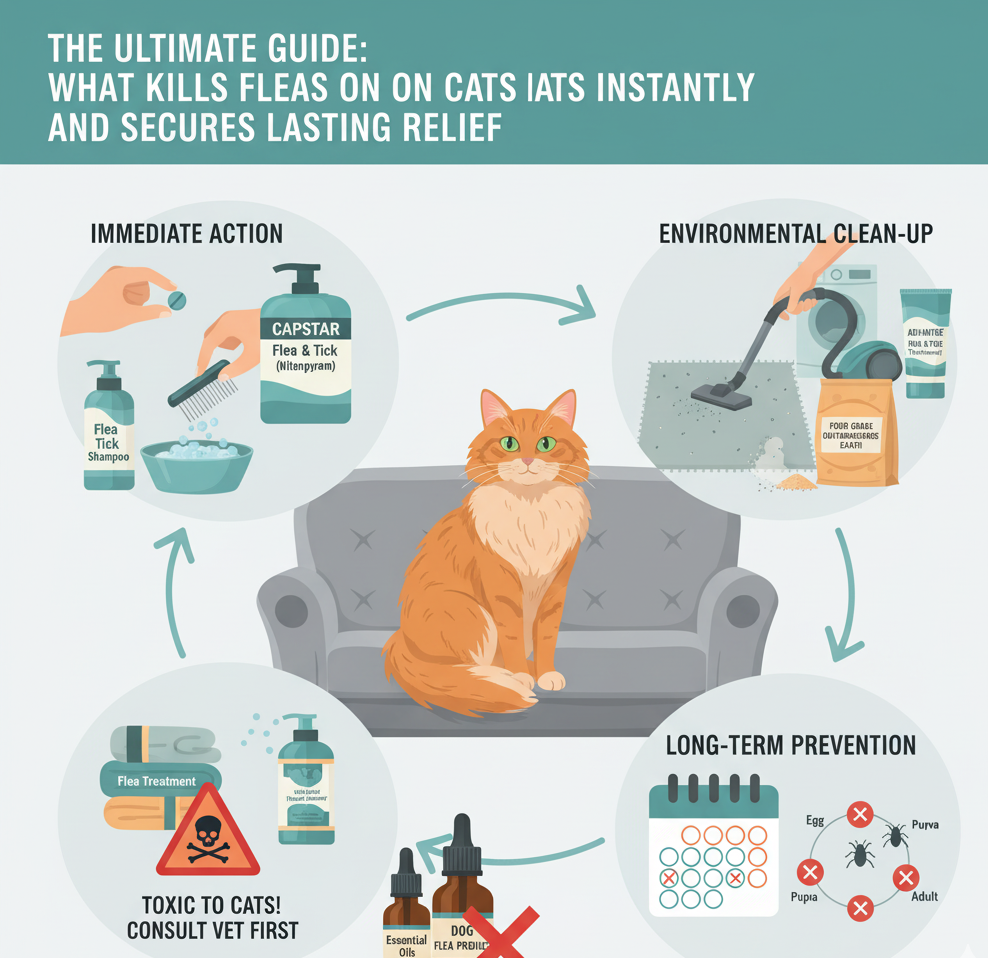Discover the science-backed ways your pet actively reduces stress and anxiety. From lowering blood pressure to boosting mood, your furry friend is a natural, powerful therapy.
1. Pets Offer Unconditional Love and Emotional Support
One of the most beautiful things about pets is their ability to love without judgment. Your dog doesn’t care if you had a bad day at work and your cat doesn’t mind if you’re feeling low, they simply stay by your side. That kind of unconditional love is incredibly grounding and it’s one of the main ways a pet reduces your stress naturally.
When life feels overwhelming, pets provide a comforting, nonjudgmental presence. Interacting with them releases oxytocin, often called the “love hormone,” which enhances feelings of trust, connection and calmness. This emotional bond helps regulate your nervous system, reducing the physical symptoms of stress such as rapid heartbeat, tense muscles and shallow breathing.
Even brief interactions, like stroking a dog, listening to your cat’s purr or watching your pet bird sing, can create a soothing effect that immediately lowers anxiety levels. For many people, pets act as emotional anchors, a steady reminder that love, acceptance and companionship exist even when the world feels uncertain.
Simply put, when life feels heavy, a pet reduces your stress by reminding you that you are not alone.

2. Pets Encourage Physical Activity and Routine
Exercise is one of the most effective ways to manage stress and owning a pet, especially a dog naturally encourages you to stay active. Whether it’s morning walks, playful tug-of-war sessions or a trip to the dog park, these activities help release endorphins, your body’s natural mood boosters.
Having a pet also adds structure to your day. Feeding times, walks and play sessions create a routine that gives you a sense of control and stability, something psychologists say is essential for reducing anxiety. Maintaining that rhythm helps you feel balanced and productive.
Even small, consistent actions such as brushing your cat, changing your fish’s water or tidying your pet’s area, can promote mindfulness. These moments ground you in the present, quiet racing thoughts and prevent your mind from spiraling into worry.
In essence, pets don’t just keep you moving physically, they help you move away from mental clutter. Each time you follow your pet’s routine, you reinforce the positive structure that helps manage your mood. So when you find yourself stuck in a stressful rut, remember: a pet reduces your stress simply by encouraging you to stay active, engaged and present.

3. Pets Improve Social Connections and Reduce Loneliness
Social isolation is one of the biggest triggers of stress and anxiety and pets can bridge that gap beautifully. Dog owners often strike up friendly conversations during walks, creating natural opportunities to meet new people and build social networks. Even online pet communities, adoption groups and training classes help people connect with others who share similar interests.
For those who live alone, pets provide constant companionship that keeps loneliness at bay. Having another living being to care for and interact with creates a sense of purpose, belonging and warmth. Studies consistently show that pet owners are less likely to suffer from chronic loneliness or depression compared to people without pets.
Your pet reduces your stress by reminding you that connection doesn’t always require words, sometimes it’s as simple as a shared look, a soft purr or a joyful tail wag.
When you talk to your pet or share moments of affection, your brain releases serotonin and dopamine, chemicals that promote happiness and relaxation. And when you connect with other pet owners, those feelings multiply, reinforcing the social and emotional benefits that come with having an animal companion.
So in more ways than one, a pet reduces your stress by strengthening both your emotional and social bonds.

4. Pets Help You Stay Present and Practice Mindfulness
In today’s world, it’s easy to get caught up in the constant noise of notifications, to-do lists and overthinking. Pets, on the other hand, live purely in the moment. They don’t dwell on the past or worry about the future, they simply exist in the now. Watching your dog’s excitement over a simple walk or your cat’s fascination with a sunbeam is a gentle reminder to slow down and appreciate the little things.
This mindfulness effect is contagious. When you engage with your pet, whether you’re playing, grooming or simply relaxing together, your mind naturally shifts away from stressful thoughts. Your breathing deepens, your muscles loosen and your heart rate stabilizes.
Therapists often incorporate animal-assisted therapy for exactly this reason. Being with an animal helps people reconnect with the present moment, especially those struggling with anxiety or trauma.
When you take the time to notice your pet’s calm breathing, their body language or the texture of their fur, you’re practicing mindfulness without even realizing it. That’s one more way a pet reduces your stress by guiding you back to the here and now, where peace truly lives.

5. Pets Provide a Sense of Purpose and Responsibility
Having a pet means you’re responsible for another life and that responsibility can be profoundly healing. Caring for your pet, such as feeding, walking, grooming and nurturing them brings a daily sense of achievement and meaning. This structured purpose helps stabilize your emotions and gives you a reason to get up and engage with life, even on difficult days.
For people battling anxiety or depression, this simple sense of purpose can be life-changing. Pets depend on you completely and that dependence becomes a source of motivation, consistency and hope.
When you care for them, your brain focuses on nurturing instead of worrying. This healthy distraction helps you regulate emotions more effectively. It’s a cycle of care and comfort: you take care of your pet and in return, your pet reduces your stress by being your loyal companion through life’s ups and downs.
In the long run, this relationship can build resilience, optimism and emotional balance qualities that make daily stress far easier to manage.

The Science Behind It: How Pets Physically Calm Your Body
It’s not just emotional comfort, the benefits of pet ownership are scientifically proven. Numerous studies show that spending time with pets can:
- Lower blood pressure and heart rate
- Decrease cortisol levels, the body’s main stress hormone
- Increase serotonin and dopamine, the “feel-good” chemicals
- Improve sleep quality and even boost immune function
Even short interactions, such as 10 minutes of petting a dog, cat or rabbit can trigger these positive biological changes. This is why therapy animals are used in hospitals, nursing homes, schools and even workplaces: their very presence helps people feel calmer, safer and more emotionally balanced.
The science is clear, a pet reduces your stress by calming both your mind and body in measurable, lasting ways.
Tips to Boost the Stress-Relief Benefits of Having a Pet
Owning a pet naturally brings comfort, but a few mindful habits can strengthen that positive impact:
- Make time for daily connection: Set aside moments each day for play, grooming or simple cuddles. These interactions deepen your bond and help your pet calm your mind more effectively.
- Enjoy the outdoors together: When possible, take your pet on walks in nature or safe outdoor areas. Fresh air, sunlight and gentle movement enhance your overall sense of relaxation.
- Keep a consistent routine: Regular schedules for feeding, exercise and rest help reduce anxiety for both you and your pet, creating a sense of stability.
- Practice daily gratitude: Take a moment to appreciate the joy your pet brings into your life. Gratitude naturally lowers stress and makes you value your furry companion even more.
- Prioritize wellness for both of you: Healthy meals, adequate sleep and routine vet checkups support a calmer, happier life for you and your pet.
How quickly can a pet help reduce stress after spending time together?
Many people begin to feel calmer within just a few minutes of interacting with their pets. Research shows that even 10 minutes of petting a dog or cat can significantly lower cortisol levels. Just a short, mindful moment is often enough to experience noticeable stress relief.
Are some pets better at relieving stress than others?
Dogs and cats are the most common stress-relief companions, but smaller pets, such as rabbits, birds and even fish can also be soothing. No matter the type, the right pet provides companionship, routine and emotional comfort that support a calmer lifestyle.
Can owning a pet help with long-term anxiety or depression?
Yes. While pets are not a substitute for professional treatment, their steady presence and unconditional affection can complement emotional healing. Over time, many people experience improved mood, reduced stress and a greater sense of positivity thanks to the bond they share with their pets.
What if I’m allergic to common pets?
If allergies are a concern, you can consider hypoallergenic breeds or choose low-allergen pets like turtles, fish or certain reptiles. These pets still offer calming, stress-relieving benefits without triggering allergic reactions.
Can volunteering with animals provide similar stress-relief benefits?
Absolutely. Volunteering at shelters or fostering animals offers many of the same emotional rewards as pet ownership. Caring for animals brings purpose, companionship and warmth qualities that naturally reduce stress and lift your spirits.
In a busy, fast-paced world, pets remind us to slow down and appreciate the simple, comforting moments. Whether it’s a joyful tail wag or the soft purr beside you at night, animals bring peace in ways science continues to explore, but your heart already knows.
They don’t just fill your home with love; they fill your life with calm, meaning and connection. So when life feels overwhelming, spend a quiet moment with your furry, feathered or finned friend. Sometimes the best therapy is right beside you, proof that pets bring stress relief simply by being part of your life.















